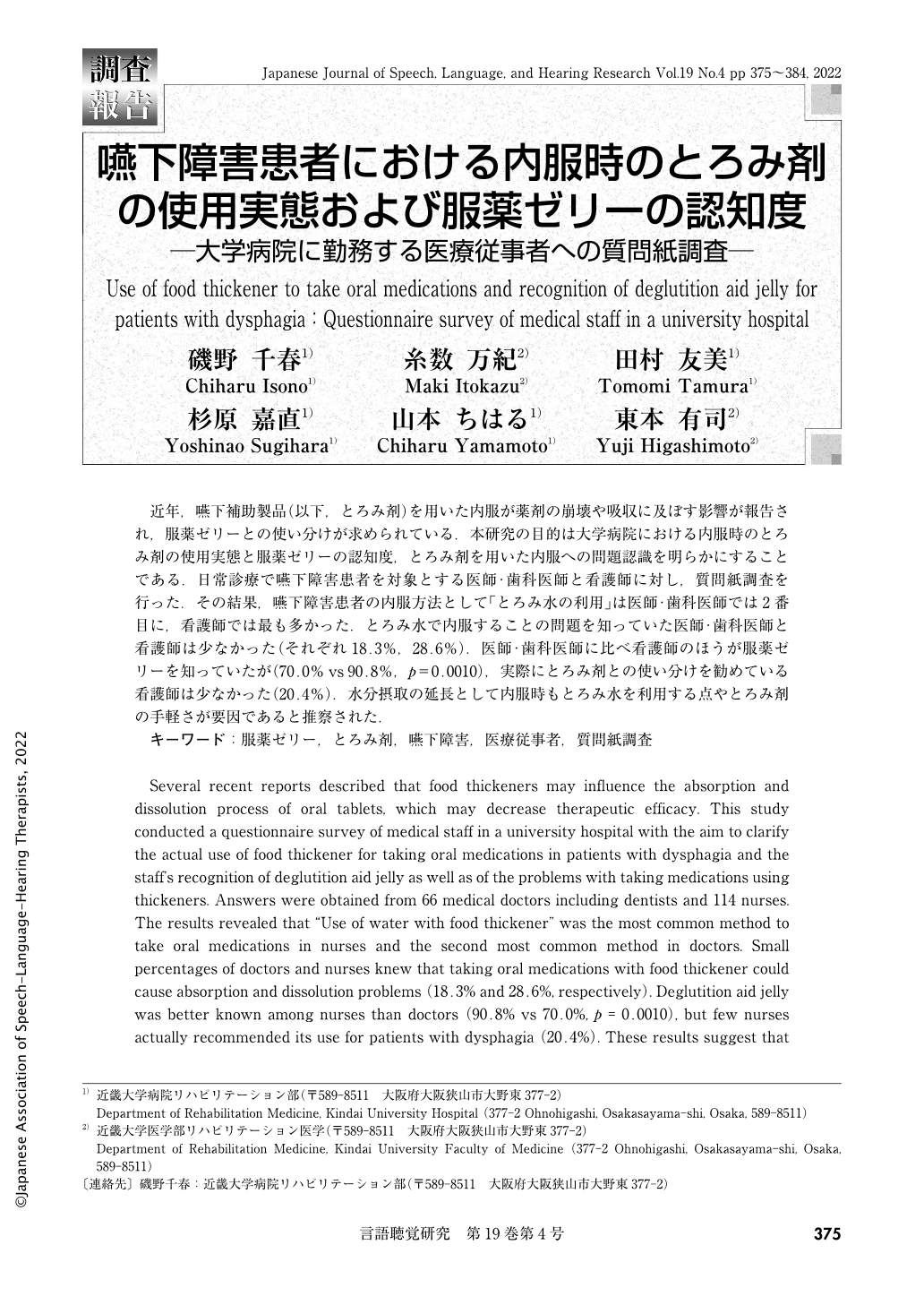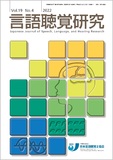Japanese
English
- 有料閲覧
- Abstract 文献概要
- 1ページ目 Look Inside
- 参考文献 Reference
近年,嚥下補助製品(以下,とろみ剤)を用いた内服が薬剤の崩壊や吸収に及ぼす影響が報告され,服薬ゼリーとの使い分けが求められている.本研究の目的は大学病院における内服時のとろみ剤の使用実態と服薬ゼリーの認知度,とろみ剤を用いた内服への問題認識を明らかにすることである.日常診療で嚥下障害患者を対象とする医師・歯科医師と看護師に対し,質問紙調査を行った.その結果,嚥下障害患者の内服方法として「とろみ水の利用」は医師・歯科医師では2番目に,看護師では最も多かった.とろみ水で内服することの問題を知っていた医師・歯科医師と看護師は少なかった(それぞれ18.3%,28.6%).医師・歯科医師に比べ看護師のほうが服薬ゼリーを知っていたが(70.0% vs 90.8%,p=0.0010),実際にとろみ剤との使い分けを勧めている看護師は少なかった(20.4%).水分摂取の延長として内服時もとろみ水を利用する点やとろみ剤の手軽さが要因であると推察された.
Several recent reports described that food thickeners may influence the absorption and dissolution process of oral tablets, which may decrease therapeutic efficacy. This study conducted a questionnaire survey of medical staff in a university hospital with the aim to clarify the actual use of food thickener for taking oral medications in patients with dysphagia and the staff's recognition of deglutition aid jelly as well as of the problems with taking medications using thickeners. Answers were obtained from 66 medical doctors including dentists and 114 nurses. The results revealed that “Use of water with food thickener” was the most common method to take oral medications in nurses and the second most common method in doctors. Small percentages of doctors and nurses knew that taking oral medications with food thickener could cause absorption and dissolution problems (18.3% and 28.6%, respectively). Deglutition aid jelly was better known among nurses than doctors (90.8% vs 70.0%, p = 0.0010), but few nurses actually recommended its use for patients with dysphagia (20.4%). These results suggest that water with food thickener tends to be used for taking oral medications. Speech-language-hearing therapists should educate medical staff about careful use of food thickener for taking oral medications in patients with dysphagia.

Copyright © 2022, Japanese Association of Speech-Language-Hearing Therapists. All rights reserved.


